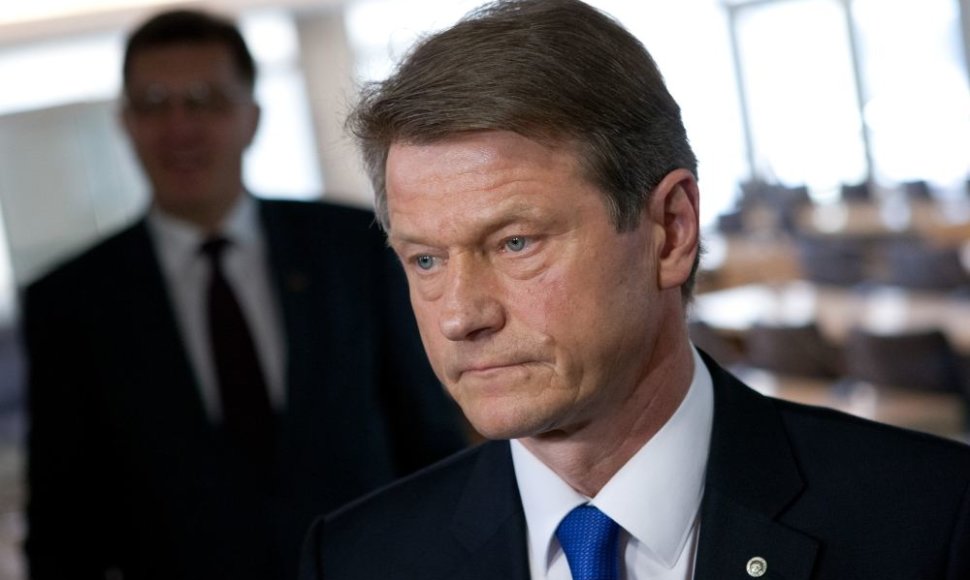The court said that the finding of the European Court of Human Rights should have been followed by amendments to the Constitution, not only the law on parliamentary elections.
The court was looking into the amendment adopted by parliament in spring, which stipulated that persons removed from official posts by way of impeachment cannot run for parliament for four years after impeachment. The earlier version envisaged a life-long ban from public office.
The last ban was based on an earlier ruling of the Constitutional Court. In 2004, it said that a person who has violated an oath of office can never again hold a position that involves an oath, but the European Court of Human Rights ruled the ban violated the European Convention of Human Rights.
The 2004 legal position carries a meaning as a precedent and is binding, the court says in a press release.
According to the press release, the Strasbourg court's ruling that the life-long ban was disproportional means that the Lithuanian Constitution is inconsistent with the provisions of European Convention for the Protection of Human Rights and Fundamental Freedom, and therefore requires changing the Constitution.
"In the light of the legal system of Lithuania being based on the principle of superiority of the Constitution, the only way of eliminating the inconsistency is adopting relevant amendments to the Constitution," the Constitutional Court said in the press release.
The amendments to the law on Seimas elections were passed in response to the ECHR ruling, which said that the life-long ban from elections to the parliament for politicians removed by way of impeachment was disproportional.
After revising the ban to four years, parliament had opened the door for Paksas, leader of order and Justice party, to run in the 14 October parliamentary elections. The president had signed the law, also urging parliamentarians to amend the Constitution.
Paksas lost his presidential position in April 2004 after impeachment procedures over violation of oath of office and gross violation of the Constitution by granting Lithuanian citizenship to his key sponsor Yuri Borisov.
Electorate won't go anywhere
After the Constitutional Court barred MEP Rolandas Paksas from the upcoming parliamentary elections, the Order and Justice party he heads may change its election strategy but this will not have a major effect upon the determination of its electorate, says political scientist Alvidas Lukošaitis.
"It is more than clear that the there will be certain changes to the attitude, election campaign strategy and tactics of Order and Justice party, however, I can't say that the decision could kill the party in the elections," Lukošaitis told BNS on Wednesday.
In his words, the party is very easy to recognize and understand by voters of a certain contingent, attitudes, and beliefs and the electorate "will not go anywhere" due to the Constitutional Court's ruling.
"This is the only thing the Constitutional Court could say. It is bound by a duty to be consistent and follow the constitutional doctrine developed earlier," said Lukošaitis.
Paksas will go to Strasbourg
MEP Rolandas Paksas, leader of the Order and Justice Party, will approach the European Court of Human Rights in Strasbourg over Lithuania's failure to implement its ruling, the party's vice-chairman Valentinas Mazuronis says.
"We will take legal measures in Lithuania and abroad to defend the citizens' right to choose. I mean Strasbourg. Clearly, Lithuania is not executing Strasbourg rulings," Mazuronis told journalists on Wednesday in comment of the Constitutional Court's ruling, which said that the law that allowed Paksas to enter the upcoming elections contained violation of the Constitution.
"In an effort to clean the reputation of the Constitutional Court that has been clearly tarnished during the lead of Egidijus Kūris and by the explanation that was made by collaboration with Constitution spirits, the court's judges now handed down a ruling that stripped all citizens of Lithuania off the right to choose and elect. Just as well, president Rolandas Paksas lost his right to be elected," said Mazuronis.
"Their fear of admitting and correcting their mistake pushed our country into a situation which today means that we have lived two decades with a Constitution that does not say a word (about ban from office) but has spirits that run against fundamental human rights," said the deputy leader of the Order and Justice party.
He expressed doubt in the court's proposal to revise the Constitution to put it in line with the European Convention for the Protection of Human Rights and Fundamental Freedoms.
"There is nothing to be changed in the Constitution, as the Constitution does not contain a chapter that would envisage a timeframe. It does not say anything about bans from participation (in elections). The chapter was created by the Constitutional Court headed by Kūris who communicated with Constitutional spirits," Mazuronis told journalists.












